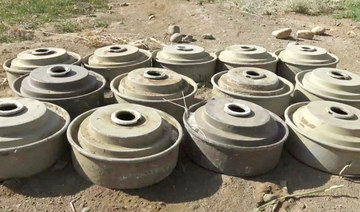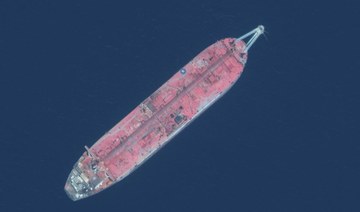AL-MUKALLA: The US on Wednesday slammed the Iranian regime for installing a new ambassador to the Houthi militia in Yemen — a move that the State Department spokesperson said shows the extent of Iran’s influence in the war-torn country.
Morgan Ortagus said the new ambassador is a member of Iran’s Islamic Revolutionary Guard Corps (IRGC), who has links to Hezbollah in Lebanon.
“The Iranian regime smuggled Hassan Irloo (Eyrlou), an IRGC member tied to Lebanese Hezbollah, into Yemen under the guise of ‘ambassador’ to the Houthi militia,” Ortagus said on Twitter, urging Yemenis to denounce Iran and its ambassador. “Iran’s intent to use the Houthis to expand its malign influence is clear. The Yemeni people should say no to Irloo and Iran.”
On Saturday, Iran’s Foreign Ministry said Hassan Eyrlou, the country’s new ambassador to Yemen, had arrived in Houthi-controlled Sanaa, a move that triggered uproar among the Yemeni public and officials.
Yemen’s Foreign Ministry on Monday sent a letter to the UN Security Council to complain about Iran’s announcement, accusing the Iranians of violating “international law and Security Council resolutions, including Resolution 2216.”
Opinion
This section contains relevant reference points, placed in (Opinion field)
Iran’s announcement came as the Houthis and the internationally recognized government were swapping hundreds of prisoners.
Protesting against Iran’s continuing military and financial support to the Houthis, Yemen’s government severed ties with Iran in late 2015, expelling Iran’s ambassador to Yemen and withdrawing the Yemeni envoy in Tehran.
Despite this, Iranian diplomats have remained in Sanaa, while Houthi officials have held numerous meetings with senior Iranian officials in Tehran.
Reacting to US criticism of Iran’s move, Yemen’s government said that it backs US efforts to restrict Iran’s interference in Yemen. “We highly commend the firm stance of the US administration in curbing Iran’s expansionist ambitions. Yemen’s government and people have been struggling for five years to end the coup that was plotted by Iran’s Revolutionary Guard,” Information Minister Muammar Al-Aryani said on Twitter on Thursday.
Yemeni military and political experts say the Iranian regime is seeking to shore up the Houthis politically and militarily because the rebels are becoming increasing politically isolated as their forces fail to make gains on the ground.
Brig. Gen. Abdu Abdullah Majili, a Yemeni army spokesman, said Iran’s new ambassador would command military activities against government forces and would facilitate the arrival of arms shipments to the Houthis.
“He is a military ruler from Iran who will govern this militia,” Majili told state media.
Political analysts also argue that by sending a new ambassador to Yemen, the Iranian regime sends a message to the world that it recognizes the Houthis as a legitimate authority in Yemen and confirms its support for the group.
“Iran wants to say that the Houthis are part of its camp and anyone wants to end the war in Yemen should come to Tehran,” Najeeb Ghallab, undersecretary at Yemen’s Information Ministry and a political analyst, told Arab News, adding that Iran’s move would prolong the war in Yemen rather than leading to peace.
“The Houthi decision has become dependent on Iran and its agenda. This Iranian behavior will lead to prolonging the war in Yemen,” Ghallab said.




























